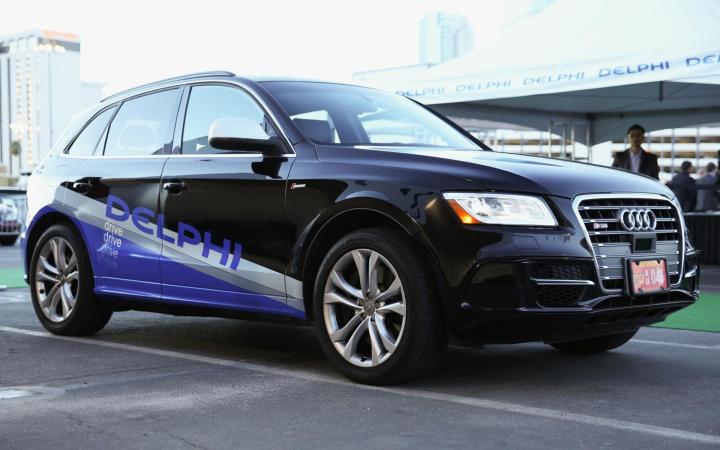
On March 22, a self-driving Audi SQ5 built by Delphi will cross the Golden Gate Bridge and head for New York, about 3,500 miles away. Get ready for the first cross-country robo-road trip.
A top automotive supplier, Delphi says it’s been testing the SQ5 on shorter drives around California and Nevada, but believes the cross-country trip will help it gather more data, which in turn will help it develop hardware that could enable the first generation of autonomous production vehicles.
Organizers expect the trip to take eight days, with no more than eight hours of driving per day, according to Wired. That gives the SQ5 plenty of time to make the journey in daylight, while sticking to the speed limit and keeping its human minders fresh.
The Audi will only operate autonomously while on highways. Like the autonomous A7 drive to Vegas run by the Audi factory, human drivers will take over for more-complicated street driving.
If all goes according to plan, the Delphi self-driving car should arrive in Gotham just in time for the 2015 New York Auto Show.
One thing Delphi hasn’t discussed, though, is legality.
California and Nevada have both officially legalized the testing of self-driving cars, but that’s not the case in other states. Carmakers test human-driven prototypes on public roads all of the time, but if something goes wrong this could still create a bit of a quandary.
Still, the mission is a go. So if you see an Audi SUV with Delphi stickers cruising through your state, don’t bother waving to the driver.
Editors' Recommendations
- All-electric Mini Cooper SE road-tripped from San Francisco to Los Angeles
- Optimus Ride launches autonomous shuttle service in New York City


